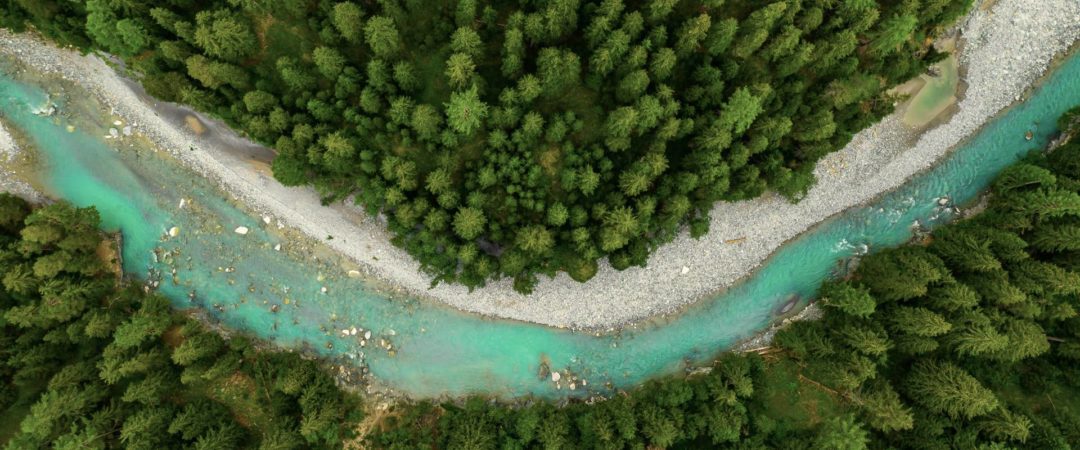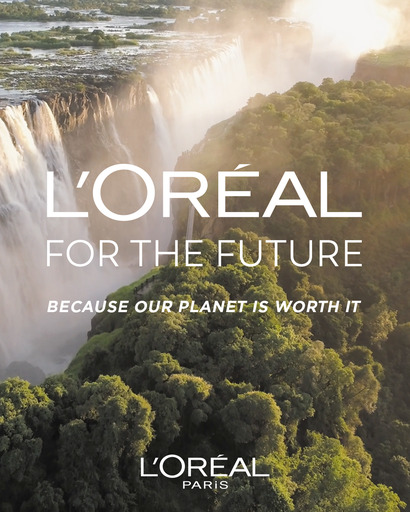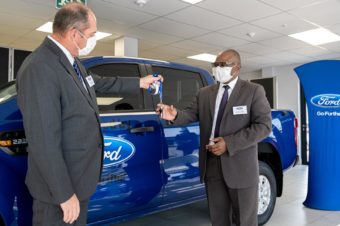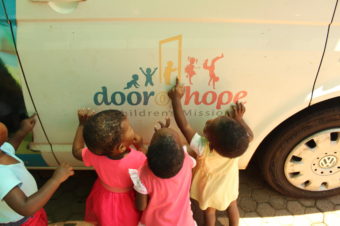
By 2030, L’Oréal Paris will reduce its carbon footprint by 50% and contribute million to environmental projects. WHY? Because our planet is worth it
L’Oréal Paris today announced its sustainability program, “L’Oréal For the Future, Because our Planet is Worth it”, initiating the brand’s latest set of ambitions for 2030. Building on its achievements to date and aligned with the ambition of the L’Oréal Group, L’Oréal Paris will now embrace the ambitious mission of reducing its carbon footprint by 50% per finished product. It will also contribute 10 million Euros to environmental projects whose beneficiaries are communities of women around the world.
“Now is the time to reconcile innovation, sustainability and progress, to make the shift to a circular economy and to reduce the impact of our products,” said Delphine Viguier-Hovasse, Global Brand President, L’Oréal Paris. “We are not starting from scratch. Between 2005 and 2020, our factories and distribution centres have already reduced CO2 emissions by 82%, water consumption by 44%, and waste generation by 35%. There is still much work to be done but we will remain strong in our resolve to make a difference and play our part in this race against climate change. L’Oréal Paris has a significant role to play being the number one beauty brand of the world, it gives us the power and the duty to make positive changes.”
Transforming L’Oréal Paris’ business to respect planetary boundaries
Optimizing packaging to accelerate the shift to a circular economy
Reducing the weight of our products – to help conserve natural resources and reduce the carbon footprint of products, the brand is working to reduce the weight of packaging. For example, it lowered the weight of the aluminium used in the L’Oréal Paris Men Expert Carbon Protect Aerosol by -5.1 grams per bottle, representing 135 tons of aluminium saved annually. Also, by reducing the weight of the Revitalift jar, L’Oréal Paris reduced the use of glass for this product by 11 grams per jar, saving 434 tons of glass annually. Furthermore, the weight of boxes and instructions for hair colour ranges have been reduced, representing an important saving of paper every year. By 2030, the brand will reduce by 20% in intensity the quantity of packaging. This economy of materials represents a significate optimization of weight and space in transport, contributing to reduce carbon emissions due to transportation.
Using 100% recycled plastic – L’Oréal Paris is working on accelerating the shift to a circular economy, where materials are kept in use for as long as possible, by optimizing packaging recyclability, striving to conserve resources and prevent plastic pollution. This includes using more recycled content in packaging, with the objective of reaching 100% recycled or biobased plastic by 2030 (or 0 virgin plastic).
Embodying change: Elvive – Since 2020, the iconic L’Oréal Paris hair care range, Elvive, has undertaken a major transformation by targeting 100% recycled PET (polyethylene terephthalate) for shampoo and conditioner bottles in Europe.
Engaging consumers – To seek alternatives to single use packaging and propose refill or reuse systems while engaging consumers, L’Oréal Paris will join LOOP initiative and take part in a project to trial new types of durable packaging. The new shampoo and conditioner packaging will be made of aluminum, and sold with a deposit, on the retailer’s website. After using the products, consumers will be able to return the packaging to the retailer that will collect and return the packaging to L’Oréal Paris for cleaning and refiling.
Improving formulas
Furthermore, to address a more conscious use of water during use phase (which represents 50% of the CO2 footprint of the brand, linked with heating the water for rinsing products) and help reduce the time needed in the shower, the brand also develops formulas that need less water to be rinsed (e.g. More than Shampoo), as well as new beauty routines that require less rinsing steps (two-in-one products or non-rinse haircare treatments such as Dream Lengths Management).
Producing sustainably
L’Oréal Paris factories continue their ongoing efforts to reduce carbon emissions, water consumption and waste generation. Between 2005 and 2020, L’Oréal Paris factories and distribution centres have reduced CO2 emissions by 82%, water consumption by 44%, and waste generation by 35%.
Today L’Oréal Paris products are made in 26 factories around the world. Eleven of them are already carbon neutral (using 100% renewable energy, without offsetting) and the rest will reach this goal in 2025.
Investing in environmental projects through programs that empower women
As women are the primary victims of climate change, L’Oréal Paris will invest €10 million in a series of 6 carbon projects whose beneficiaries are communities of women around the world. Along with financial support, L’Oréal Paris will also develop specific programs that encourage a greater inclusion of women in leadership of these projects. In Honduras for example, where local indigenous communities protect and restore mangroves, the brand will support a project managed by a cooperative of women who will receive support and education.
Facts & figures: L’Oréal Paris’ sustainability achievements and future goals
Eco-design of products
- 2020: 93% of the brand’s new & renovated products improved based on life cycle methodology
- 2030: 100% of all L’Oréal Paris products will be eco-designed
Packaging
2020:
- 76% of the PET plastic is made of recycled plastic
- 100% of Elvive’s shampoo and conditioner bottles made with 100% recycled plastic
2025:
- 50% of plastic will be recycled plastic, among which 100% recycled PET
- 100% of L’Oréal Paris’ plastic packaging will be recyclable, reusable or compostable
2030:
- 100% of the plastic will come from recycled or biobased materials
- L’Oréal Paris will reduce the quantity of packaging used for its products by 20% in intensity
Formulas
2020:
- 11,453 beneficiaries of our sustainable sourcing programs for raw materials
2030:
- 100% of L’Oréal Paris’ renewable and mineral raw materials will be sustainably sourced
- 95% of the brand’s ingredients will be of renewable origin, derived from abundant minerals or circular processes
Factories
2020:
- 11 carbon neutral factories (among 26 factories)
2025:
- 100% of the brand’s factories will be carbon neutral
2030:
- 50% less CO2 emissions per product, compared to 2016
Environmental projects
2025
- 10M euros invested in environmental projects
- 88 515 tonnes of residual carbon emissions by 2025
- 54K hectares protected
Water
2030:
- 100% of L’Oréal Paris’ factories will be “waterloop factories”
The brand will offer a full selection of waterless haircare products
Transport
- 2030: the carbon emissions intensity linked to transport of our products will be reduced by 50% for each product



